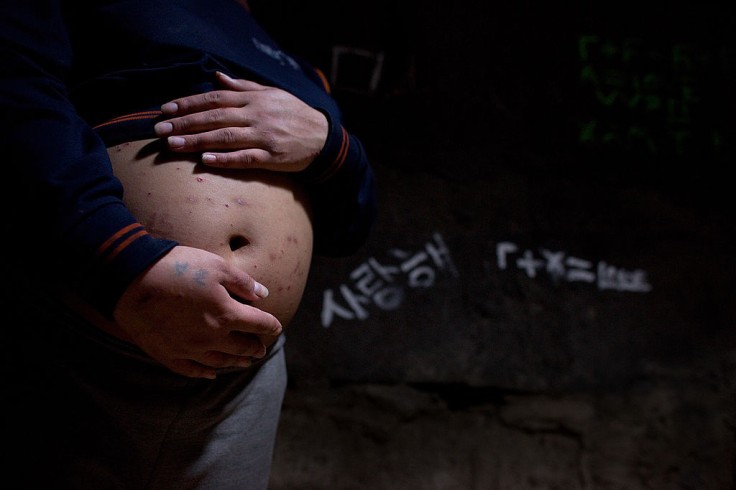
A mom allergic to her second baby had wondered why she was having blisters during her pregnancy and continued skin discomfort after giving birth. Fiona Hooker from the U.K. developed a rare autoimmune disorder that causes her to have allergies to her baby. Only 50,000 women worldwide have this condition that occurs during the second or third trimester of the pregnancy.
Hooker was pregnant with her second child when she started having these stinging sensations on her skin at 31 weeks. She was not yet aware that she may have allergies to her baby. Her condition got worse and turned into blisters by the time she was in her final trimester of pregnancy.
According to the New York Post, Hooker was initially prescribed standard steroid creams to get some relief from the skin sensations. However, the stinging welts became so severe that she and her husband had to rush to the emergency room one time.
Doctors could not figure out what was wrong with Hooker, but she was able to safely give birth to a son, Barney, in June 2021. However, the blisters didn't stop, and she noticed that she was having a skin reaction where the baby would touch.
The mom said that she would get temporary relief if she scratched the blisters, but this left her skin raw, painful, and red. She also didn't enjoy the newborn stage of her son because she was physically hurting from the allergic reaction.
Read Also: What Is Parosmia? Know the Effects of Long COVID for People Who Cannot Enjoy Good-tasting Food
What is Pemphigoid Gestationis?
Hooker said that she had no such skin conditions when she had her first pregnancy and gave birth to a daughter, Phoebe, who is now three years old. This baffled the doctors even more.
Eventually, following a series of blood tests, Hooker was told by a specialist that she has a rare autoimmune disorder known as pemphigoid gestationis that causes her immune system to create antibodies that attack her skin.
According to the American Osteopathic College of Dermatology, pemphigoid gestationis was originally referred to as herpes gestationis, but it has no links to the herpes virus. The condition is more similar to autoimmune diseases like Grave's disease.
It's not known why the body makes antibodies that attack the skin. However, studies have shown that allergies may be triggered by a protein found in the placenta. In Hooker's case, doctors told her that they suspect it might have to do with the DNA of the baby's father, Warren Hooker.
"My son must have a gene from his dad that my daughter got from me instead," Hooker told the Daily Mail. "Because I didn't have it with my first pregnancy."
Six Months of Recovery
Most cases of pemphigoid gestationis are usually mild and treated with topical steroids. In some severe cases, stronger oral steroids or immunosuppressive therapies may help control the blisters, alongside antihistamines.
The mom, however, dealt with her allergies to her baby for six months post-birth. She occasionally uses the steroid cream, especially when she has her period, which usually causes a flare-up.
However, she believes her body is slowly getting over pemphigoid gestationis. She and her husband had decided that they will not have any children anymore, especially after the mom admitted her experience put her off getting pregnant ever again.
Related Article: New Mom Burst Some Blood Vessels for Pushing Hard During Childbirth